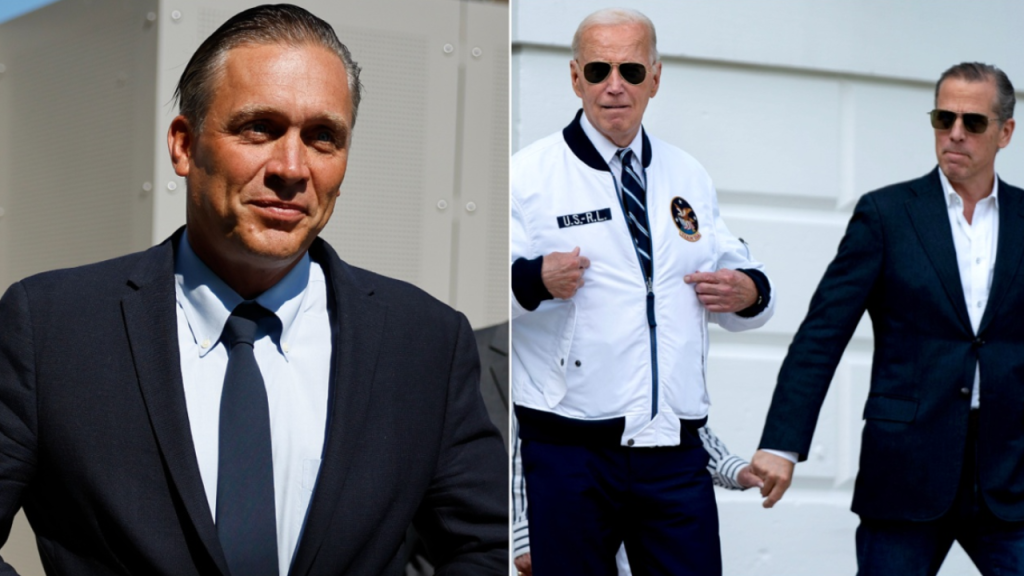In a notable turn of events, President Donald Trump recently pardoned Devon Archer, a former business associate of Hunter Biden. This decision has sparked conversations regarding Archer’s previous conviction and the implications of the pardon not only for Archer but also within the broader political landscape in the United States. Trump’s action comes amidst a backdrop of various political maneuvers and societal debates, including legislation and public policy shifts directly affecting citizens.
| Article Subheadings |
|---|
| 1) Overview of the Pardon |
| 2) Background on Devon Archer |
| 3) Political Reactions to the Pardon |
| 4) Broader Implications of Pardons in the Trump Administration |
| 5) Conclusion and Future Outlook |
Overview of the Pardon
On Tuesday, official announcements confirmed that President Trump had pardoned Devon Archer, who had previously been sentenced for fraud. Trump stated, “Many people have asked me to do this. They think he was treated very unfairly.” This act of clemency reflects Trump’s ongoing approach to pardons, often signaling his views on justice and fairness. The right to pardon remains a powerful executive tool in the U.S. government, allowing presidents the discretion to forgive federal offenses. The decision is expected to stir varied responses across political spectrums as it intersects with the current administration’s grappling with issues of accountability and justice.
Background on Devon Archer
Devon Archer gained notoriety as a close business partner of Hunter Biden. His conviction in 2018 was for fraudulently obtaining funds through the sale of tribal bonds, involving a Native American tribe. Archer had been accused of misleading investors and misusing proceeds, which ultimately led to significant legal consequences. The partnership between Archer and Hunter Biden drew additional scrutiny, particularly in political circles where Hunter’s business dealings have often come under fire. The intricate relationship among business, politics, and law enforcement plays a crucial role in understanding Archer’s troubled history and the implications of Trump’s pardon.
Political Reactions to the Pardon
The pardon has not gone unnoticed in the political arena. Various officials and commentators have weighed in, with reactions ranging from support for Trump to strong criticisms from opposition parties. Supporters of the pardon argue it rectifies what they view as an unjust legal circumstance for Archer, echoing Trump’s claims of unfair treatment. Meanwhile, critics contend that this pardon symbolizes a broader trend of political favoritism, eroding trust in the legal system and suggesting that the administration may prioritize political allies over principles of justice and accountability. The ongoing discussions reflect an underlying tension within American politics regarding governance and the rule of law.
Broader Implications of Pardons in the Trump Administration
Pardons in the Trump administration have become increasingly significant. With previous controversial pardons making headlines, the implications extend far beyond individual cases. Such decisions can serve as signals to other potential beneficiaries and reflect the political loyalties of the president. Critics often argue that this trend diminishes the integrity of the justice system, suggesting that pardons may be used as tools for political gain. Furthermore, the public scrutiny surrounding these pardons raises questions about transparency and the motivations behind such executive actions. The implications could potentially influence future behavior from political leaders, both in terms of seeking pardons and the actions they engage in while in office.
Conclusion and Future Outlook
As the political landscape evolves, the impact of Trump’s recent pardons may not only affect those directly involved but also people within the broader societal context. The discourse surrounding these decisions highlights ongoing narratives about justice, accountability, and the moral fabric of political leadership. Observers may find themselves closely monitoring how these developments might shape future interactions between justice and politics in America. Trump’s administration’s approach to pardons and the ensuing reactions may ultimately play significant roles in influencing public perception and policy direction moving forward.
| No. | Key Points |
|---|---|
| 1 | President Trump pardoned Devon Archer, a former associate of Hunter Biden, following claims of unfair treatment. |
| 2 | Archer was convicted in 2018 for fraud involving the issuance of fraudulent tribal bonds. |
| 3 | Reactions to the pardon have been mixed, reflecting varying political opinions across the spectrum. |
| 4 | Pardons during the Trump administration highlight broader trends regarding political loyalty and justice. |
| 5 | The ongoing discourse includes concerns about the integrity of the justice system and future political accountability. |
Summary
The recent pardon of Devon Archer by President Trump underscores the complex interplay between politics and justice in contemporary America. With backgrounds steeped in legal controversy, the implications of this decision extend beyond the individual, reverberating through societal discussions on fairness and accountability. As the political environment continues to evolve, the perceptions of such executive actions will likely shape future discourse around governance and the principles guiding the American legal system.
Frequently Asked Questions
Question: What led to Devon Archer’s initial conviction?
Devon Archer was convicted of defrauding a Native American tribe in a scheme that involved the fraudulent sale of tribal bonds.
Question: Why is Trump’s pardon of Archer controversial?
The pardon is controversial due to perceptions that it reflects political favoritism and undermines the integrity of the judicial system, raising concerns about accountability and justice.
Question: How have reactions to the pardon varied politically?
Reactions range from support among Trump’s allies, who believe Archer was treated unfairly, to strong criticism from opponents who argue that such pardons erode public trust in legal institutions.


